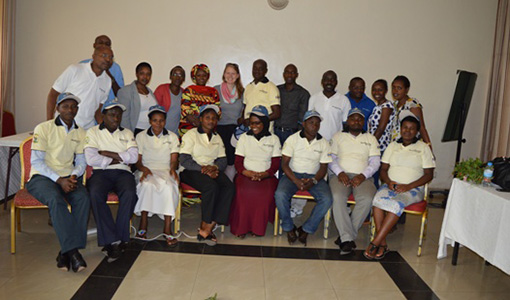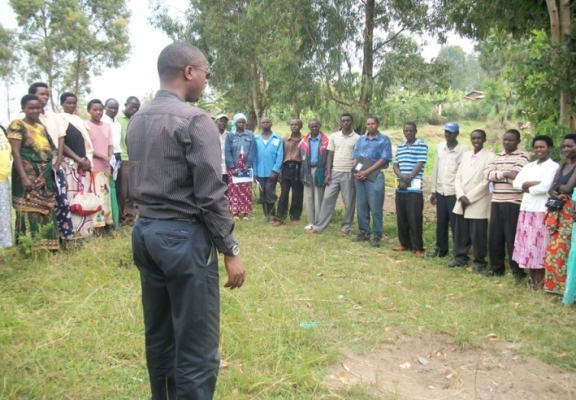Rwanda Men’s Resource Centre (RWAMREC) was created in 2006 by 9 men. The organisation aims to address issues of negative masculine behaviors and gender inequalities in order to promote healthy families, men’s welfare, women’s rights and men’s well-being. The organisation also aims to prevent gender-based violence, and related consequences including HIV/AIDS, health, high rates of demographic growth, poverty and environmental issues.
Strategies
To effectively serve communities, the organization has developed the following strategies:-
- Creating a space for self-reflection, interactive discussion and honest sharing of feelings, ideas, and beliefs in efforts for challenging violent behaviors and practices in families and communities.
- Promoting partnerships and collaborations among men and women in gender-based-violence prevention strategies and working very closely with local leaders and other key stakeholders involved.
- Awareness raising and empowerment for change actions in families and communities.

Achievements
Some of RWAMREC's achievements include:-
- Established MenEngage Network to implement male engagement approaches in development programs.
- Engaged in mass mobilization through radio spots and talk shows, and organized sensitisation campaign nationwide.
- Carried out capacity building for organizations to implement male engagement initiatives.
- Provided mentorship program for the promotion of non-violent behaviors and healthy adolescent relationships.
- Worked with ex-combatants in promoting positive masculine behaviors for effective reintegration.
- Worked with men to support women’s economic empowerment through Village Saving and Loan Associations.
- Provided a course on masculinity to police personnel within their training centre at Gishali.
- Engaged in policy advocacy for formulation of gender focused policies and strategies such as the GBV policy and the strategy on access to finance for women and youth.

Partnerships
RWAMREC has developed successful partnerships with the following organisations: CARE International; PLAN International; UN Trust Fund through Sonke Gender Justice; Norwegian People’s Aid; USAID through Africa- Women, Peace, and Security (AF-WPS); Dutch Ministry of Foreign Affairs through PROMUNDO and Rutgers WPF.





